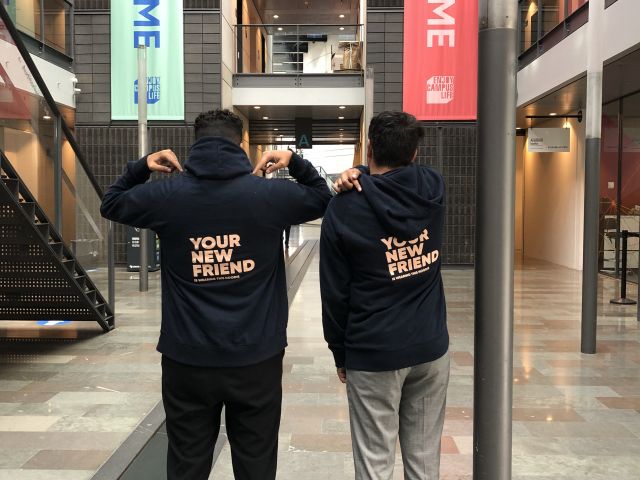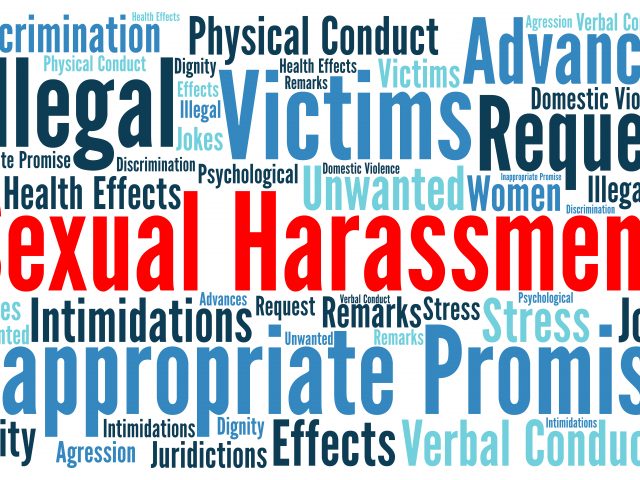New codex for online teaching: “It’s meant as a vehicle for creating conversation”

(Illustration: Giphy)
“If online lectures are live, breaks are recommended” and “No one can expect to receive feedback outside normal working hours”. These are some of the guidelines in a new codex made and introduced by CBS Students and Teaching and Learning. In total, the list contains 26 tips on how to act responsibly and ethically in online classrooms.
This semester, after 50% of all teaching activities at CBS moved online, the physical lecture halls have been largely replaced with virtual classrooms and the teaching and learning situation, which was formerly familiar territory to students and teachers, has changed completely.
Therefore, President of CBS Students Sarah Langkjær Diemar and Head of Teaching and Learning Jakob Ravn, are now introducing a Codex for Responsible Online Learning (RoLe) at CBS to help both students and teachers to act and behave as responsibly as possible.
Among other tips, the codex advocates all webcams being turned on during learning sessions, that no one can expect to receive feedback outside normal working hours, and that CBS recommends that all online discussions should be learning oriented, constructive, well-meaning and well-articulated.
A lack of mutual online agreements
The new codex, which has just been published, was devised in collaboration between Teaching and Learning, CBS Students and CBS. And according to the President of CBS Students, it makes sense to list behavioral guidelines when lessons move from physical to virtual spaces.
“Online teaching is still a new format that differs significantly from traditional lectures in auditoriums. But in any classroom situation, online or not, both teachers and students share a responsibility to create educational environments that are beneficial for teaching and learning,” Sarah Langkjær Diemar says.
She explains that for some students and teachers, online teaching situations may create new forms of mental distance in the classroom compared to physical classroom lectures, making it more challenging to meaningfully act, observe, respond and interact.
“Thus, in order to help individuals to fulfil that responsibility, we’ve compiled a list that encourages them to start a dialogue about how they navigate in an online classroom and make sure everyone feels equally respected in the new set up,” she says.
The codex is not just based on an assumption about what happens when lessons move online. Rather, the list was requested by both students and teachers who have experienced various challenges in virtual classrooms.
“We’ve met a lot of frustration from both teachers and students about the lack of mutual agreements on how to behave in online teaching situations,” says Head of Teaching and Learning Jakob Ravn and goes on:
“Almost from the moment CBS closed its campus and most activities moved online, everything turned upside down and the behavioral patterns that teachers and students knew suddenly had to be converted into an online context. That was a challenging task for many, which is why the demand for an online responsible code of learning increased.”
Jakob Ravn explains that the concrete challenges concerned everything from students or teachers who failed to turn on their webcams during lessons and thereby preventing mutual visibility, to problems with speaking in turn when participating in online discussions.
Not set in stone
The codex document provides advice for such situations, and although, at first glance, it resembles a list of rules and regulations, it is intended as a vehicle for stimulating conversation, according to Sarah Langkjær Diemar.

(Illustration: Giphy)
“I hope that codex will encourage students and teachers to enter into a dialogue instead of looking at it as a list of obligatory points you can tick off,” she says and continues:
“Since we’ve seen huge demand for this from both students and teachers, there’s a breeding ground for talking about the problems, entering into agreements to make it easier to rely on each other when challenges occur.”
And according to the President of CBS Students, the codex has been well received.
“It is great to see that many professors choose to share the codex next to the overview of the curriculum in Canvas. I see it as a sign, that the codex is being respected for its importance, and as a clear signal that the need for it was there.”
“Moreover, CBS Students follow most Study Programs on Social media, and seeing how many times the codex have been shared and actively discussed online inspiring. The codex is still relatively new, but I hope next step is for the professors to actively bring it up in the classroom.”
She explains that just as technology and the online world are constantly developing, behavioral patterns also evolve and change. Therefore, the points listed will be continuously regulated as time passes and new challenges occur in the online classrooms.
“The codex is not set in stone. The idea is definitely that we’ll return to the list once or twice a year to update it and consider whether to add new points or regulate existing ones,” Jakob Ravn says and goes on:
“We’re already receiving inputs for additions to the codex. Recently, for instance, I encountered a teacher who asked me if we could add a point advising people to be fully dressed during online video lessons. So, in other words, we are receiving plenty of wide-ranging inputs for the list,” he laughs.
However, set in stone or not, Jakob Ravn and Sarah Langkjær Diemar have a clear message concerning the RoLe codex for all students and teachers attending online lessons at CBS: “Use it!”





































































































































Comments